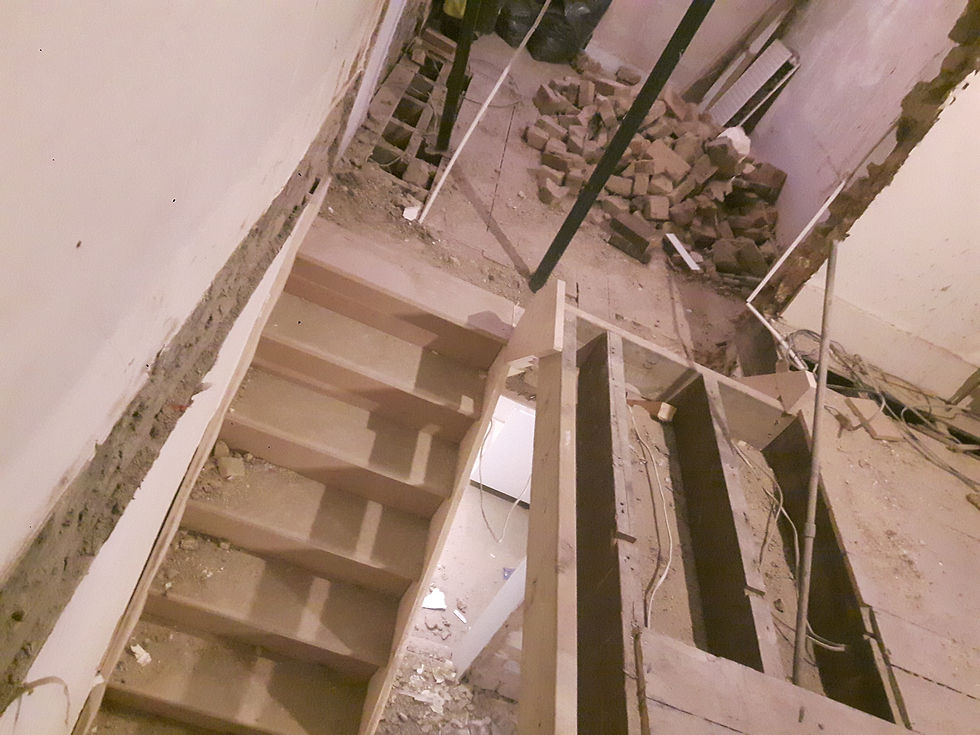How to Handle a Party Wall Dispute – Step-by-Step Guide for Homeowners in London & the Home Counties
- Tom Norris

- Sep 7, 2025
- 3 min read
Updated: Sep 8, 2025

Introduction
Few things are more stressful during a home renovation than a Party Wall dispute with a neighbour. Whether you’re planning a loft conversion in Streatham, a basement in Kensington, or an extension in Surrey, disagreements can halt your project, add costs, and damage neighbourly relationships.
This guide explains exactly what to do if your neighbour dissents or ignores your Party Wall Notice, step by step. We’ll cover the Party Wall etc. Act 1996, how disputes are resolved, and why an impartial surveyor is key to keeping your project on track.
What Counts as a Party Wall Dispute?
Under the Party Wall Act, a dispute occurs if:
Your neighbour formally dissents to your Party Wall Notice.
Your neighbour ignores the notice for 14 days (silence counts as dissent).
There’s disagreement about the work, damage risk, or construction method.
A dissent isn’t necessarily hostile; it simply means your neighbour wants formal legal protection through a Party Wall Award before work begins.
Step-by-Step Guide to Resolving Party Wall Disputes
1. Serve a Valid Party Wall Notice
The first step is always to serve a legally correct notice. This shows good faith and protects you if the matter escalates.
Timing: Serve at least 2 months before starting structural works, or 1 month for excavations.
Content: Include full details of your works, plans, and timelines.
Best Practice: Have a surveyor draft and serve it to avoid errors that invalidate your notice.
2. Wait for a Response (14 Days)
Neighbours have 14 days to respond:
Consent: They sign to confirm they’re happy with your plans.
Dissent: They request formal documentation.
No Response: Treated as dissent.
3. Appoint Surveyor(s)
Once dissent occurs, both parties must appoint surveyors. There are two routes:
Single Agreed Surveyor: One impartial surveyor acts for both owners (cheaper, faster).
Two Surveyors: Each party appoints their own, with a third surveyor on standby for disputes.
Surveyors are neutral experts, not “your side vs their side.” Their job is to protect both properties.
4. Schedule of Condition
The surveyor(s) will inspect and document your neighbour’s property:
Detailed photos and written notes of every wall, ceiling, and feature.
This acts as a “before” record to avoid false damage claims later.
5. Drafting the Party Wall Award
The Award is a binding legal document that covers:
Exactly what work is being done.
Working hours and methods to minimise disruption.
Protective measures to safeguard your neighbour’s property.
Who pays for what (usually the building owner).
Steps for resolving any future disputes.
Once signed, this gives you legal permission to start work.
6. Carrying Out the Work
As long as you follow the Award:
You are legally protected if disputes arise.
Your neighbour is reassured that their property is protected.
Surveyors can revisit the property post-works to check for damage.
Common Reasons for Party Wall Disputes
Noise and Disruption Concerns: Especially with basement digs or loft conversions.
Damage Fears: Period and listed homes are often more fragile.
Lack of Communication: Surprises make neighbours anxious; early discussions help.
Historic Boundary Issues: Inaccurate records or missing deeds can complicate matters.
Tips to Prevent and Resolve Disputes Quickly
Talk Early: Inform neighbours before serving notices; transparency builds trust.
Use an Experienced Surveyor: A clear notice reduces anxiety and mistakes.
Provide Clear Plans: Visuals help neighbours understand your intentions.
Consider Mediation: An impartial surveyor often resolves issues without hostility.
Real-Life Example
A homeowner in Wandsworth wanted to build a rear extension. Notices were served, but one neighbour objected, citing concerns about vibration damage.
MET Surveyors carried out a Schedule of Condition to document the property.
A Party Wall Award outlined safe construction methods, including vibration monitoring.
The neighbour felt reassured, signed the Award, and the project proceeded on time.
Why Surveyors Are Essential in Disputes
Surveyors act as neutral mediators, not advocates. Their role is to:
Protect both properties with legal documentation.
Avoid unnecessary legal action.
Provide reassurance to nervous neighbours.
Keep projects moving without hostility.
Choosing a skilled surveyor can turn a contentious situation into a smooth, compliant process.
Costs of Handling a Dispute
Building owners typically pay for both surveyors.
Fees range from £700–£1,500 per surveyor for straightforward projects.
Agreed Surveyor option is faster and more cost-effective.
Key Takeaways
Dissent isn’t bad—it’s a normal part of the process.
A well-prepared Award legally protects everyone.
The Party Wall Act is designed to keep peace, not cause stress.
With a trusted surveyor, disputes are often resolved quickly.
Why Choose MET Surveyors for Dispute Resolution
Decades of Experience: London terraced homes, mansion blocks, and suburban estates.
Neighbour-Friendly Approach: We defuse tensions before they escalate.
Speed and Accuracy: Notices and Awards served promptly.
Home Counties Coverage: Ideal for Surrey, Essex, Kent, and Hertfordshire builds.
Get Expert Help Today
Don’t let disputes derail your project. With MET Surveyors, you’ll get:
Clear, legally compliant Party Wall Notices.
Impartial surveyors to mediate and protect everyone involved.
Fast, cost-effective Party Wall Awards.
Book a Callback: Speak to a Party Wall expert today. We proudly serve all London boroughs and the Home Counties.







Comments